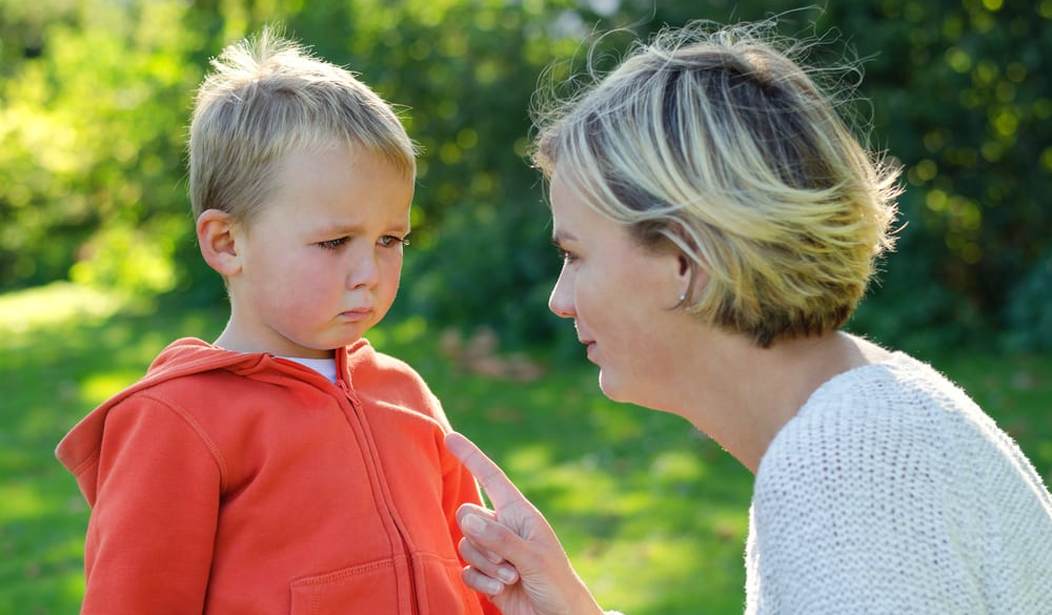When my son turned one, it was like a switch had flipped. Suddenly, my very curious, go-with-the-flow little guy woke up to the wider world and wanted his own way. At his 15-month physical I asked our doctor if this was normal. He just smiled softly and said, “Some kids mature differently than others. It’s just his personality.”
The summer was spent fighting over everything. Food, napping, television, when we did what activity, you name it. And he had an opinion on everything. Yelling did no good. He’d only cry and repeat the bad behavior once he’d been consoled. When I explained to my mother that he would throw 45-minute temper tantrums to protest napping in his crib, she was shocked. “He doesn’t just wear himself out and fall asleep?” Nope. When he sets his mind to something he doesn’t give up.
The latest fight is over holding his hand while he walks. “He doesn’t want to let go,” I explained to the doctor. “But he can walk, right?” the doctor pressed. When I answered yes, the doctor nodded, “Don’t worry. It’s confidence. He just needs to believe he can do it.” Suddenly I flashed back to my very young self staring into a swimming pool. For six years various teachers encouraged me to jump in. I would flat-out refuse every time, completely terrified that I would drown. The son who I thought to be so much like his father is actually a bit like me after all.
This realization led me to rethink how I handled his moody responses. It also inspired me to do some research on Highly Sensitive Children. Highly Sensitive Children (HSC), a term coined by psychologist Elaine Aron, are “one of the fifteen to twenty percent of children born with a nervous system that is highly aware and quick to react to everything.” HSCs are intensely responsive to their environment, quickly picking up on everything from sights and sounds to the emotions of others. Maureen D. Healy explains:
With a sharpened sense of awareness these children are often gifted intellectually, creatively and emotionally demonstrating genuine compassion at early ages. The downside is that these intensely perceptive kids can also get overwhelmed easily by crowds, noises, new situations, sudden changes and the emotional distress of others.
Reading this description I began to tick off experiences I’d had with my son that highlighted these behaviors. As much as he enjoys meeting and interacting with people, large crowds inspire clinginess. Change has never been his strong suit. Most strikingly, the only times he’s been responsive to discipline are when I’ve simply broken into tears of frustration. Seeing me upset inspires an empathetic response. Conversely, when my husband or I get angry, he grows intensely fearful, breaking into tears at the drop of a hat.
Perhaps what I was engaging with wasn’t an early-onset case of the so-called Terrible Twos. Perhaps my little guy was just being his highly sensitive self. Testing the theory, I replaced yelling with gentle responses like, “No, don’t do that. That makes Mommy sad.” When my husband shouting, “NO! DON’T TOUCH THE HOT STOVE!” caused our boy to burst into tears, we immediately stopped and sat down to talk about the situation. An explanation and extra hugs helped him to make sense of what happened and why. These are only a few of the changes we made, all of which fostered a more positive relationship between my son and me and a happier home for all of us.
Parenting a Highly Sensitive Child requires immeasurable patience. Depending on how you were raised, you may have to completely change your perspective and habits regarding discipline and even daily interactions. But, taking your child’s personality into account will make parenting a million times easier. It will also lay the groundwork for challenging times ahead. Your acceptance now will let your HSC know that he or she will always have a safe haven to retreat to when the world becomes emotionally overwhelming.









Join the conversation as a VIP Member